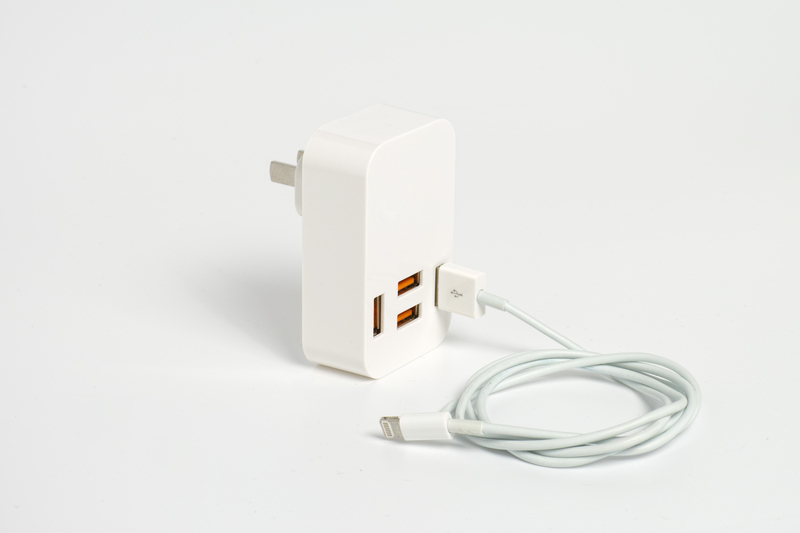Expert Tips for a Stress-Free House Moving Journey
Posted on 04/06/2025
Expert Tips for a Stress-Free House Moving Journey
Moving house can be one of life's most exciting but challenging experiences. Whether you're relocating across town or heading to a different city, the process often comes with a fair share of stress and anxiety. The good news? A smooth, organized, and worry-free move is entirely possible--with the right strategies. This comprehensive guide shares expert tips for a stress-free house moving journey, ensuring you feel prepared, motivated, and even a little excited for this new chapter.
Why is Moving House So Stressful?
There's no doubt that the idea of house moving stirs up a mix of emotions: excitement, anticipation, and sometimes, overwhelming stress. According to psychologists, the massive change and logistical demands make moving one of the top life stressors, right up there with starting a new job or planning a wedding. Understanding the causes helps in tackling them head-on:
- Lack of planning creates chaos and last-minute panic.
- Time constraints add pressure to get everything done quickly.
- Emotional attachments to your old home and neighborhood can make leaving tough.
- Financial worries about moving costs can cause tension.
But with planned steps and expert advice, you can minimize the stress greatly.

1. Start Early: The Essential Pre-Move Checklist
One of the golden rules for stress-free moving is to start as early as possible. Procrastination is a sure path to chaos. Here's an expert-approved pre-move checklist to kickstart your journey:
Take Inventory
- Room by room, jot down everything you own.
- Mark items that are valuable or fragile for special handling.
- Identify what you want to keep, donate, sell, or discard.
Notify Necessary Parties
- Landlords or realtors (about your moving date).
- Utility companies--schedule final readings and service transfers.
- Schools, banks, and medical providers--update your address.
- Friends and family.
Book Reliable Movers Early
- Research moving companies with good reviews and transparent pricing.
- Get written quotes from at least three providers.
- Reserve your moving date well in advance, especially during peak seasons.
2. Declutter: Less Stuff, Less Stress
Decluttering is a crucial step in the house moving process. The less you have to move, the less effort, money, and time you'll spend. Here are some expert decluttering tips:
- Start with closets and storage spaces you forgot existed.
- Use the six-month rule: If you haven't used something in the last six months, consider if you truly need it.
- Host a garage sale or donate items in good condition.
- Dispose of broken or unnecessary items responsibly.
Tip: Decluttering a little bit every day is more effective and less overwhelming than attempting it all at once.
3. Strategic Packing: The Expert Way
Room-by-Room Approach
- Tackle one room at a time to avoid confusion and disorganized boxes.
- Label each box with its contents and its intended room in your new home.
- Color-code boxes for quick identification (stickers or markers).
Get the Right Packing Supplies
- Stock up on sturdy boxes, packing tape, bubble wrap, stretch film, and markers.
- Special boxes for fragile items like glassware and electronics.
- Use original boxes for appliances when possible.
Packing Hacks for Efficiency
- Fill suitcases and duffel bags with heavy or awkward items.
- Leave clothes on hangers and wrap them in large garbage bags for swift unpacking.
- Use towels and linens to cushion breakables--save on bubble wrap!
- Pack essentials in a "first-night box": toiletries, device chargers, bedding, and a change of clothes.
4. Organize Your Documents and Valuables
Amidst the excitement and flurry of activity, important documents can easily get misplaced. To ensure a seamless transition, secure your essential documents and valuable items separately:
- Gather identity documents, house deeds, rental agreements, moving contracts, insurance papers, birth certificates, and passports.
- Pack these in a clearly labeled, easy-to-access folder that stays with you at all times during the move.
- Do the same for small valuables, jewelry, and sentimental items.
5. Take Care of Utilities and Services
Smooth house moving is all about eliminating surprises. Nothing's worse than arriving to a new home with no electricity, water, or internet!
- Contact utility providers (gas, electricity, water, internet, waste disposal) to schedule transfer or disconnection and new connection services.
- Arrange for final meter readings at your old house to prevent billing issues.
- Forward your mail using postal service redirection services.
- Inform your bank, insurance providers, and subscription services of your new address.
6. Create a Moving Timeline
A moving timeline can save you from chaos. Create a week-by-week plan leading up to moving day. This timeline should include:
- Booking movers and ordering supplies (6-8 weeks before move).
- Begin packing non-essentials (4 weeks before).
- Change of address notifications (2-3 weeks before).
- Pack essentials and defrost fridge/freezer (1-2 days before).
- Final cleaning and walkthrough checks (moving day morning).
Pro tip: Digitize your timeline or print a checklist to keep everyone in the household on track.
7. Communicate with Your Movers
Once you've chosen a reputable removal company, keep communication lines open:
- Clarify the moving plan, arrival time, and special instructions.
- Check insurance coverage for potential damages.
- Provide movers with your updated contact information and directions.
- Set aside building access codes, parking permits, or elevator reservations for their use.
8. Self-Move vs. Professional Movers: What's Best?
Deciding between a DIY move and hiring professionals can impact both your stress levels and your wallet. Here's what the experts suggest:
Benefits of Professional Movers
- Efficient, experienced handling of furniture and fragile items.
- Use of specialized equipment and vehicles.
- Reduced risk of injury or property damage.
- Frees up your time for other essential moving tasks.
DIY Moving: When Does it Make Sense?
- Moving a short distance with minimal belongings.
- Friends or family available to assist.
- Tightly controlled budget.
Expert tip: For a truly stress-free move, professionals are often worth the investment.
9. Settle In: Making Your New House a Home
Once the boxes are unloaded, the real adventure begins! Unpacking and settling in can be just as overwhelming as the move itself. Here's how to manage the process seamlessly:
- Prioritize unpacking essentials: kitchen basics, bedding, and toiletries.
- Arrange furniture before opening every box--start with large items.
- Take breaks to explore your new neighborhood.
- Introduce yourself to neighbors for a quick community connection.
- Check appliances, smoke detectors, and water heaters for functionality.
Your first night might be a little chaotic, but planning ahead ensures some comfort in your new space.
10. Take Care of Yourself and Your Loved Ones
In the rush of a move, it's easy to neglect your own wellbeing. Remember, a calm mind makes for a stress-free moving experience:
- Stay hydrated and eat balanced meals.
- Keep a first-aid kit handy on moving day.
- Manage children's and pets' needs (arrange sitters or safe play spaces).
- Give yourself time for patience and rest.
Moving with Children or Pets: Extra Tips
Relocating with little ones or furry family members? Here's how to keep them--and yourself--calm:
- Talk about the move early and positively with children.
- Keep favorite toys, snacks, or comfort items accessible during the move.
- Arrange for pets to stay with friends or at boarding facilities during the busiest days.
- Set up kids' and pets' rooms first for stability.
11. Common Mistakes to Avoid During House Moving
Even the most organized plans can hit snags. Knowledgeable movers warn against these common pitfalls:
- Underestimating the time and resources involved.
- Poor labeling leading to misplaced important items.
- Ignoring insurance and mover accreditation.
- Overpacking boxes, causing them to break or become too heavy.
- Forgetting to double-check new keys, utilities, and appliance hookups in your new home.

12. Frequently Asked Questions About Stress-Free Moving
- How far ahead should I start planning my move?
Start planning at least two months before, especially if moving during busy seasons. - Should I tip my movers?
Yes! If happy with the service, tipping is appreciated (typically 10-20% of the total bill). - What's the biggest moving day mistake?
Packing everything at the last minute, leading to lost or damaged items.
Conclusion: Relocate with Confidence
While moving house may never be completely stress-free, with advance planning, expert tips, and the right resources, you can dramatically reduce your anxiety and chaos. Remember to start early, stay organized, and don't hesitate to ask for help.
Take a deep breath--your house moving journey is the beginning of a wonderful new chapter. Armed with these expert moving tips, you'll settle into your new home with confidence and ease.
Latest Posts
Efficient Methods for Moving Your Bed and Mattress
Protecting your piano with professional moving services
How to Preserve Your Sofa: Pro Tips for Extended Storage



